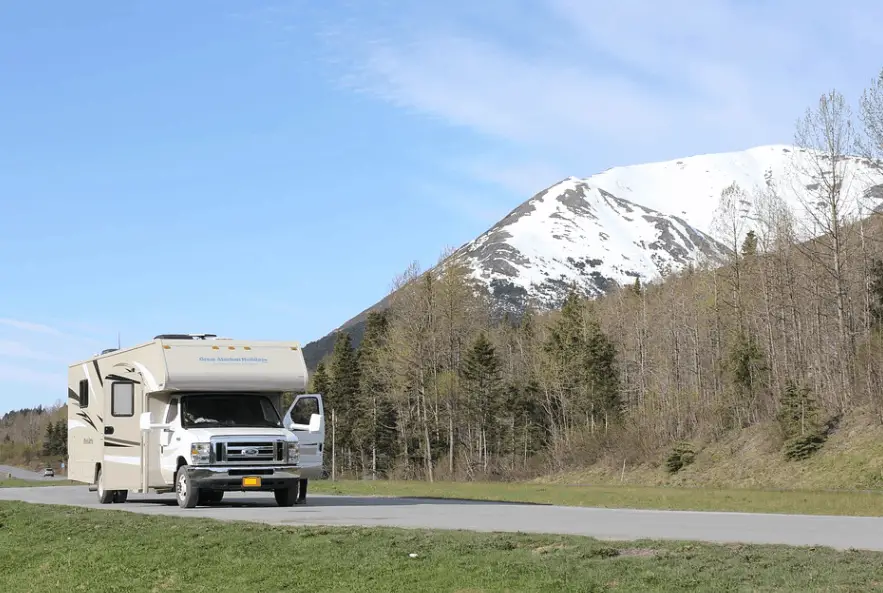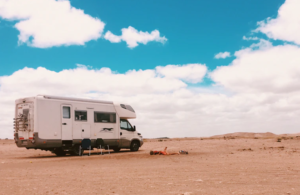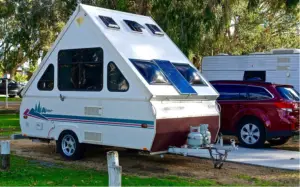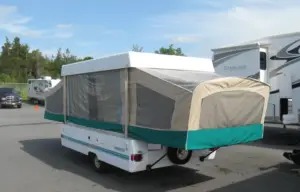A RV insurance cost varies a lot. You can insure a RV for a cost of anything between $100 to $15,000 per year basis. Obviously, the price variation is because the RV itself can cost anything from $5000 to millions of dollars.
A towable pop up camper or tent trailer can be bought at less than $5000 and a mega luxurious class A motorhome can come at a price of more than $500,000. And thus, depending on how luxurious your RV is, the insurance cost will vary.
Class C motohrome insurance on an average costs around $500 to $ 2000 per year where as a class A RV comes at higher cost of around $1200 to $4000 annually.
On an average a travel trailer can be insured at a cost between $180 to $900 annually. A pop up tent trailer can be insured at less than $200 where as a fifth wheel with more luxuries packed-in will need around $300 to $1200 per year for insurance.
While mostly the newer models will come at insurances costs that are mentioned above but used RV’s can be insured at lower costs. Overall RV insurances is not cheaper than car insurance. But, for smaller RV’s like tent trailer insurance cost is much lesser and could be lesser than cars or suv at times.
Not only the type of RV matters but also its present condition. The more the worth of the motorhome or trailer more is the insurance cost you pay. A RV or camper trailer insurance cost variation is because of many factors.
Same RV can be insured at different prices depending on what all aspects are covered. Different companies will quote differently and its upto you to get the best possible package for your RV.
Direct negations may not be possible with companies but you can try getting quotes from multiple companies and compare to get the best deal. Combining packages can get the best deals and save you a lot. Insurance for RV is necessary and getting the right package is also important, especially for those who full time in RV.
The need to insure RV
An insurance for vehicle is always important. Just like how a car need to be insured, a RV also need to be insured. Driving such a big vehicle on road has a potential of attracting issues which nobody can predict. And thus, its always better to insure the RV with proper coverage.
A road side collision or a breakdown for RV can be a costly affair for you. With motorhome or RV being used for full time living people tend to keep costly items and thus, you need to have sufficient cover. A theft or vandalize can never be predicted and thus, covering that aspect is also a point to consider.
Having your valuable RV insured gives you peace of mind and you wont be in a situation that will take aways thousand of dollars to recover from the incidents. While there are many coverage’s, a liability coverage is the most important and very much needed. Mostly for towables the liability could be covered under the car insurance itself, but you need to cross verify that with the insurance policy or company.
Another point to remember is you may think of insurance as an optional one for your RV, but it may not always be. For towables it may be optional in some states but liability is required. If the car insurance is covering that, then that’s good else you need to buy it.
Depending on which state you reside the motorhome insurance could be mandatory. It also becomes mandatory in situation when you rent it or you finance the RV.
A dealer renting the RV wont let the RV go on road unless its fully covered. Also, the money lender will make sure the RV is insured and thus you cannot skip it. If you are going to fully pay the money yourself, then its upto you how you go about insuring the RV. But, the liability coverage in case of both types is required.
What does the RV Insurance cover
Understanding RV insurance is not difficult if you ask the insurance company person enough questions. If you are not satisfied with the answers, then probably you need to look for a different insurance company.
Insurance in itself is a complex business and not surprising that even the agents themselves may not know all details. Lets have a look at different coverage’s that we get in RV insurance. Normally, RV insurance would cover for below different aspects.
1. Bodily Injury (BI) and Property damage (PD) liability
Having a liability for your motorhome or travel trailer is mandatory in almost all states. So, what does this really cover. This will cover for costs related to injuries that you cause to others in accidents related to RV. This could be the injured persons medical bills, their effected income or anything that the effected person will demand.
A RV is a big vehicle on road and you taking any chances related to liability will destroy all your savings. Normally, you will get it upto 100 k or 300 K for single persons or multiple persons respectively. Most of the times RV insurance companies will give this much but you can try with multiple companies to get this higher.
Similarly to bodily injuries your RV could also be responsible to property damages. Such damages can again prove to be very costly for you to pay yourselves. Imagine a person claiming a $50,000 in damages, will you be okay to pay this much amount yourself?
A smaller per month deduction can save you from such events. Again most states will need you to have this insurance for any kind of RV. Liability is also needed for rented RV’s.
2. Collision Coverage
Next is collision. This coverage is basically to cover your RV in losses during accidents or collisions. This also covers for other vehicles involved in accident. Driving a big class A RV or class C is not easy. And if you are not highly experienced than events like collision should be covered without any doubt.
A collision can damage you RV or someone else’s vehicle. And a damaged RV will cost you heavily to get repaired. A damaged RV involved in accident also looses it value heavily.
So, to recover from such incidents its better to have collision coverage. Mostly this will cover for all costs related to your RV or the other party’s vehicles as well, but its better to check with the company and read through the policy.
3. Comprehensive
A RV is not only susceptible to accidents or collision but also from other damages. Comprehensive coverage is for other than collision damages. This is also one coverage that confuses lot many people.
So, what all aspects are covered in this? This can cover damages caused due to fire, or vandalism, theft, floods, tornadoes or storm or falling objects. Its important for you to go through policy docs to understand what all points are covered under this.
If you look at this events , you can never predicts about any of these. You dont know whether the area will have flooding or an earthquake. And if you are living in areas that are prone to any of this natural disasters then its better to have comprehensive coverage.
Depending on where you live, (that is the state) your comprehensive coverage cost may vary. Comprehensive coverage may be required or mandatory in some states. Your insurance company will be aware of that, so you need to confirm this with them. Also, renting a RV or taking finance from someone else will need you to take this coverage.
4. Uninsured and under-insured insurance coverage
This protects you when the other vehicle owner is under-insured or uninsured. Even though insurance could be mandatory and so much necessary not all people take it. And you definitely don’t want to be in losses due to others.
So, with this kind of coverage even if the other person involved in accident is not having the insurance or is not having sufficient coverage then you will be covered under this. This may also come in handy during hit and run cases. Different states have different policies around this.
5. Medical coverage
This coverage is for covering any medical bills that you or your RV passenger may have to pay during RV accidents. Even though you may have separate medical coverage having this component included into your RV insurance can be beneficial as this will be less costly. You need to talk to your insurance agent and get the details around this.
6. Roadside assistance
This is a specialized rv insurance coverage that all companies may not offer. This will pay for all the costs incurred when the RV fails or needs assistance on road away from your home. This can include towing the RV, repairing, tire blow outs and or any other assistance you need on road.
May be you are out of fuel and need that or battery failure or even some electrical failure or engine issues. While you are driving that heavy vehicle way far from your home an incident like this will be a heavy toll on your wallet. So be ready for such incidents if you often travel far.
7. Total loss replacement coverage
This is a very interesting and at the same time confusing coverage for RV. If the RV is destroyed or hasn’t remained of use due to any reason whatsoever then you get payed the value for which it was bought or even the same new model at that time.
If you don’t have this coverage than the amount you get will be as per depreciation. And you know how much the RV depreciates. In 5 years it could depreciate more than 30%. And without this, the total replacement coverage will be much lesser than the value when bought. You need to check the insurance policy documents to get to know how the values are paid.
8. Personal effect coverage
This coverage is for personal costly items that you carry inside a RV. While a occasional vacation rvers may not feel the need of this, full timer do need to consider this. You could be carrying valuables like jewelry or costly electronics or any other pricey items in RV.
This is a specialized insurance coverage and you need to discuss with insurance agent to get the exact amount that can be covered. The items to be covered need to listed out with amount declared. Normally you may get coverage of around $2000 to $3000. A custom made Rv insurance can cover more depending on various factors.
Why the variation in RV insurance cost
There are so many factors that go into RV insurance that no two RVers can get same insurance cost. Lets have a look at some of the factors that dictate the costs.
Most companies work with their list of factors to decide the price. While some will ask you few question about some aspects and other will not even bother about it.
Mostly it will be to make sure you are not underpaying. But, at times you will also find nice agents doing it so that you can get some discounts or lower rates. Lets have a look at factors that affect the pricing.
- Your age and RV Experience: How old are you is a question they will ask you for sure and its not a formality. Your age will determine the monthly cost and its not only that but also your experience as a rver. The more you have driven the rv, better will be the rates. So, its your age plus the experience as an Rver that counts.
- Age of the RV : The older the RV lesser is the insurance cost. More luxury means more cost for insuring the RV. Its obvious, the costlier the vehicle more the amount insurance company has to pay in claims.
- Your record as a driver : If you have been into accidents previously then the cost will increase. A clean slate record will give you benefits.
- Previous claim history : If you haven’t had any claims in past few years then you get a good deal. If you have been claiming in past years then the insurance company thinks twice.
- A full timer or not : If you are driving the RV occasionally then the Insurance company may be little easy on you. But, if you are full timer than be ready for lot of questions and costs that aren’t that low. RV full timers find it little difficult to get good rates and sometimes getting coverage can be difficult. It all depends on your state of residence as some states may not have that many companies offering the insurance.
- Residence state : It also depends on the state of residence. Some states will have higher rates and some lower.
- The type of RV : Bigger the RV higher is the insurance cost. Class A rv insurance will be higher than a smaller class b or travel trailer.
- Miles : How much you drive will also affect the rv insurance. The more miles you drive bigger is the risk and higher is the insurance cost.
- Storage : How and where you store your RV also determines the cost you pay for insurance. A RV not stored properly is prone to damage and its a critical factor for such massive vehicle.
- Credit score : Your credit score will obviously make the difference for your RV insurance monthly cost.
Getting discounts
The benefits that you may get with RV insurance are great but you also pay month after after. And thus, getting some discounts initially is smart move for you , especially if you are full time Rver.
Most factors above are self defining how you can get discounts or lower prices. But, most may not be in your hand while buying the insurance. Lets see some other factors to get discounts on RV insurance
- RV driving classes : If you can take some classes or training for RV driving then that can help you get some discounts as well.
- Multi vehicle discount : if you have multiple vehicle that need insurance along with RV, then talk to the agent and check for discounts.
- RV club : Some RV insurance companies give discounts for members of RV clubs. If you are already a member of any club then inquire for such discounts
- Paying full amount upfront : Paying full amount at times can get you discounts. If the % is higher then go for it.
- History with insurance company : If you have been buying from the same insurance company for years then there are chances of getting extended discounts.
- Accident or claim free driving : Driving safely can get you discounts. Check if such discounts are available in the beginning.
- Insurance transfer : Transfer your insurance from one company to another can get you discounts. If you already have the insurance and not happy with it then try transferring it to other company but ask about discounts before doing this.
Different RV insurance companies
With so many RV’s running on road its not surprising that so many companies provide for their insurance. The competition is fierce and hence you should try multiple companies for quotes before finalizing. Some of the companies that provide for RV insurance are below,
- Progressive
- Nationwide
- Statefarm
- Goodsam insurance
- Farmers
- Safeco
- Allstate
- National General
- Geico
- National Interstate
- Blue sky Insurance
- Foremost




